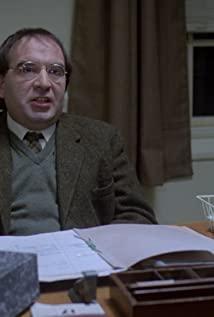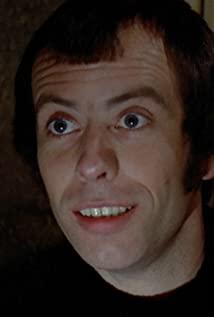I have been there before, I knew all about it.
Once on tumblr, I saw a brief introduction written by a person for myself, and I remembered a lot of things I forgot when I closed the novel.
For a moment, I felt that when I came back to write this book after nearly a year, I didn't know where to write. Last summer, on a long and hot afternoon and a cool and restless night, I was holding a cup of hot tea in my bedroom. I finally finished reading it, and the big tears rolled down and I was too embarrassed to wipe it off.
I suddenly remembered that it was March 31 this year. I re-watched it again and I was unable to sleep. He Baorong hugged Li Yaohui's quilt and cried so hard that he could no longer bear the weight of love. It reminded me of the last In one episode, Charles reaches out and strokes Sebastian's blurred face painted on the wall. The next day I was sitting on the bus listening to Cucurrucucu Paloma, and I was saddened and took the bus stop.
Maybe some people will say it's inappropriate to think that way, and I know there's no comparison between these two men, but I'd still like to say that they are still similar in how they express their feelings. Or maybe the feelings and expressions between men are like this. God took out a rib and turned it into tenderness connected by blood, but he did not give men who are independent individuals such a chance. So, when He Baorong danced drunkenly with the ghosts in a tango bar filled with the smell of spirits, tobacco and sweat, what he remembered was that he and Li Yaohui embraced gently, slowly spinning in the apartment, putting his Jaw and one-hearted dependence rested on his shoulders. And Sebastian, who lives in Morocco, only said lightly, I kept thinking I was back in Oxford.
Maybe we can prematurely talk about a topic that has been hotly debated since the novel's 1945 novel, is it love, or is it love, between Charles and Sebastian.
At Anthony Andrews and Jeremy Irons, their answer was "yes". I think so too. This love even reached a destructive level.
Cara, the smartest person in the book, said that the passage in front of the window of Venice cannot be deleted no matter how bad the script is. She said, "It is a kind of love that comes to children before they know its meaning. It is better to have that kind of love for another boy than for a girl." She also foresees the consequences of such love, a volcano of hate.
She was speaking of Lord Marchmain and Lady Marchmain, of course, the wise, sober woman who, at the time, at the height of the love between two boys, could not have foreseen that her second half of the sentence was wrong. Charles loves Sebastian of course, and as the storyteller, he has been telling the story in a cold, distant, restrained, reserved manner, trying to make it sound plain, ordinary, but a little more poetic, but I think there was only one time he didn't control himself and plunged headlong into a raging wave, despite the repeated emphasis on Sebastian being the forerunner, and finally, after a brief, almost cold-war-like back and forth with Julia, he used an almost spring water to hold ice floes. The running voice said, I had not forgotten Sebastian. He was with me daily in Julia; or rather it was Julia I had known in him, in those distant Arcadian days. I had not forgotten Sebastian, every stone of the house had a memory of him. After the scent of the person beside the pillow has been changed, this kind of confession is undoubtedly like a frankly saying that compared with a woman's twitching dress, the tinkling hairpins collide, he will never forget But it was still the same bottle of Cointreau that Sebastian used to hold back the bottle he left behind at the end of the luncheon.
And for Sebastian, the boy holding the teddy bear's emotions are also meaningful, and his sudden change in his unreasonable attitude towards Charles does not mean disappointment in friendship, or spiritual love. Fading, or more ridiculously, like in the movie, is to dislike Charles coveting his family's money or his own sister (the screenwriter also has a hard hand). He used an inappropriate analogy to Charles, as if you bought a favorite dress and only wore it on the most worthy occasions. He's smart enough to know that a middle-class boy can't be permanently or temporarily lost in front of his high-sounding family. He may be reluctant to sacrifice Charles in exchange for a summer of not being lonely. But he finally retreated in the face of loneliness. The fear of a man who has not grown up, the fear of loneliness, can no longer be satisfied with a room with a teddy bear and a babysitter. A child who grew up under the religious indoctrination and devotion of the nanny muttered by the mother's love, grew up in the same generation with the same experience, so did not care about his pain every second, love was all he lacked. . So Charles became an innocent sacrifice, temporarily isolated for love, and found again for loneliness. But when Charles did get to know the Flyte family, of course Sebastian was miserable at first, of course alienated, of course lost trust, and of course felt that Charles had become his mother's eyeliner. As for later, I think Sebastian already knew that Charles hadn't betrayed him. When he escaped to Charles' house and the two met as promised, Sebastian asked him "Have you gone over to her side?" and Charles should have believed it after he answered No. But indifference germinates more easily than love, and there is no love and passion in the world that can come back. Sebastian still loves him, but he can no longer recall the illusion that he could fight against the world. He knew that Charles couldn't save him, so he looked more openly, but the human feelings gradually became indifferent, so we watched the two gradually walk with love. Far.
If it's comforting for us all to say that, Sebastian never hated Charles, and even without Charles, even if he fought his loneliness that summer, he'd still be in a foreign land. Charles' fault was simply falling in love with a child who didn't grow up.
In Sebastian, this kind of love is just a useless effort, it can't save itself, and for Charles, this kind of love destroys everything. Does he love Julia, does he love Celia, does he love his children. To be honest, I didn't understand what Anthony said. But my understanding is that there is a kind of love, some love is flesh and blood, and it may be the "charm" that I don't understand what it is that kills Charles, or it may be love.
No one would think about him and Celia, but Julia, the protagonist of the second half of the novel, was a problem. It seems to me that he never loved Julia and Julia never loved him. Charles' love for her can only be based on the fact that she is Sebastian's younger sister, and is surprisingly similar to Sebastian, she is only a short-term self-imposed exile without any qualitative improvement in life. There is nowhere to vent the passion, and the similarity of the body and character is used to replace the emptiness of the soul after not grasping the Platonic love. Julia has never loved him. It is also a work of the creator who is amazing. Sebastian only asks for love and happiness, but as the eldest daughter, she asks the whole world to return her beauty and excellence with glory and envy. From this point of view, this is why Sebastian will be loved wherever he goes, and Julia's wearing the same skin can only lead to a sudden death. Her dissatisfaction, the sense of crisis that she felt that she had achieved nothing and her heart was higher than the sky, was her uneasy self-report. The past and the future were pressed too tightly on both sides, and what was left was a present that was desperately looking for a sense of existence. Charles is just a harbour to succeed Rex. In middle age, she still needs the envy of everyone, and she still needs others to say that she was the wife of a politician who called for wind and rain when she was young, and she still has small accomplished painters to accompany her for the rest of her life. This kind of passion of two-way frustration is only a brief warm-up between two orphans who have nothing to borrow and nothing to hide in the storm, but they can never save each other.
Maybe after talking about the strange topic of love, I should talk about its screen, screen adaptation.
I can bluntly say that when I wrote this article, it has a lot to do with the 08 version of the movie, and I can also bluntly say that I first read the 08 version before I came into contact with the book and TV series.
I don't want to discuss the distortion of the plot in the 08 version, the distortion of what I want to convey. The point of contention about this version is also on Sebastian. A character who only appeared 1/3 of the time, but everyone spent the remaining 2/3 of the time missing him.
After reading the 08 edition, plus I have a certain understanding of Ben Whishaw, I recognized his performance of Sebastian very much at that time. Maybe Whishaw, and the Sebastian he fashioned, was to the taste of the era. Especially for girls, this Sebastian can be regarded as a master who can live in his heart.
But after reading the original, I realized how far the Whishaw version was from the boy in the original. The boy with the orchid in the buttonhole, holding the teddy, sitting in the wheelchair eating fresh berries, praying that it will always be summer, to the bald, drunk at the church door, praying just to be a remote The church janitor, dragging a broom and hanging a bunch of keys, the lovely old drunk Sebastian, this kind of turn of fate cannot be deduced by the so-called Moroccan monastery at a 45° angle to the sky and melting in the sun. I don't know if it's because of the script, but Whishaw's performance of Sebastian is superficial if it's nice, and a little bit sloppy if you're not polite. After all, not all men who have feelings for the same sex have "strong femininity", and not all noble young masters who are affectionate and hold a teddy bear must be weak. At least, the Sebastian that the original book wanted to portray is not such a character. The first time I realized this problem was when I read a novel about the Moroccan scenery in Charles' eyes: gentle streets, walled city, windows open to the stars, aire scented with cloves and incense and wood smoke, I know that Sebastian, it is to appreciate Don't come to such a sparse scenery.
Subjectively, I prefer the 81 version, which also forces me to be more cautious when it comes to the Anthony Andrews version. In all fairness, Uncle AA is an actor with very strong personal traces, and the hometown also limits his later development in a sense, but when he interprets Sebastian, the most outstanding point is that he uses a sincere, clear, Not deliberately giving Sebastian more delicate colors, on the basis of retaining masculinity, still makes you feel sorry for him. I won't say more about him, or risk being accused of upvoting the other.
As for Charles, I guess there is no comparison.
In the novel, the character of Charles, as I have repeated many times, despite his cold and distant tone, Evelyn Waugh generously shows us his calculus. As a middle class, you can even say that you are from an ordinary family and have an average family background. In the face of such a hereditary aristocrat, who does not have the slightest thought. When Lady Marchmain tried to pull him into line with the manuscript, he admitted that it was a pleasant experience to be drawn and valued in this way. Later, when Lord Marchmain said that he would leave Brideshead to him and Julia, he also showed a small and unscrupulous excitement. When Sebastian went to Venice with him, he also calmly enjoyed the leisure and pleasure brought by status and wealth. Ambition is not without it, but it does not mean that it can be magnified arbitrarily. If Charles was bent on being sent to the door and being a drooling pug like Samgrass, he should have been on his knees begging for mercy when Lady Marchmain accused him of "callously wicked" and "do something so wantonly cruel", but he wasn't touched, Jeremy Irons even showed a small smile when he brought it to the door when he played this episode.
Julia, I won't say it anymore, he and Brideshead are people who I have not been influenced by the two versions of the actor at all and have their own imagination. Hayley Atwell didn't even find the way, but Diana Quick has a taste, which is always worse than the Julia in my heart.
In fact, when I write this, I will think, I spent nearly a day writing, what a pile of dregs. Still, thank you to everyone who sees this here, fast forward or word for word. I also forgot my wish and wrote down the bits and pieces that have been lingering in my mind this month or even a year. In the future, as understanding changes, this article may be revised again.
The Brideshead Revisited I bought was almost rotten. I took it on a trip. I clipped a Stella McCartney perfume test paper when I was transferring in Doha. The perfume is called Lily. , maybe it's what Stella is willing to show the world as her mother, but after being caught in the book for almost a year, the accumulated taste with paper and dust has already surpassed Stella's control. For her, she misses her deceased mother, and for the people in this book, there seems to be too much to remember.
Of course, Jane Asher, who played Celia in the 81 version, is probably a little out of harmony with this fragrance. If she let go of her pride and he let go of his machismo, there is no such thing as half of the condolences. This is off topic.
View more about Brideshead Revisited reviews











